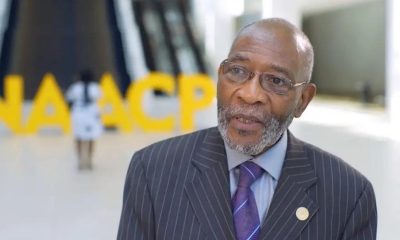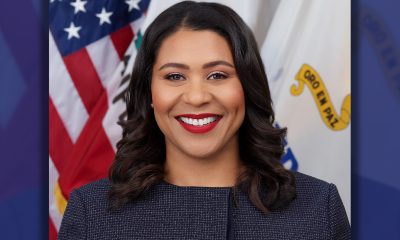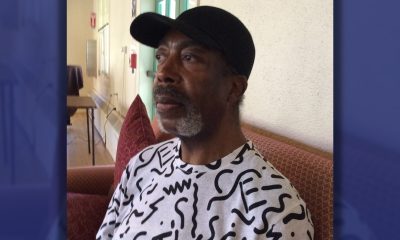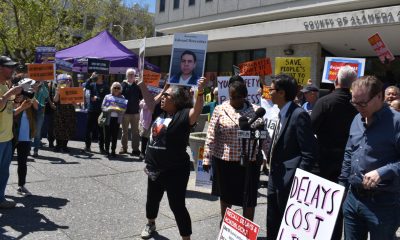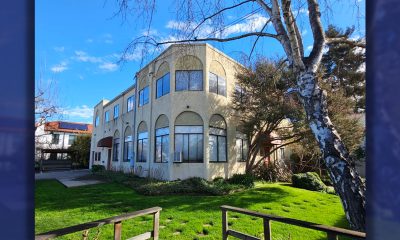Antonio Ray Harvey
California Sues Five Largest Oil Companies
On Saturday, California Gov. Gavin Newsom and Attorney General Rob Bonta announced that the state is suing five of the world’s largest oil companies and their subsidiaries — including Exxon Mobil, Shell, Chevron, ConocoPhillips and BP — for “more than 50 years of deception, cover-up, and damage that have cost California taxpayers billions of dollars in health and environmental impacts.”

By Joe W. Bowers Jr.,
Edward Henderson and
Antonio Ray Harvey
California Black Media
On Saturday, California Gov. Gavin Newsom and Attorney General Rob Bonta announced that the state is suing five of the world’s largest oil companies and their subsidiaries — including Exxon Mobil, Shell, Chevron, ConocoPhillips and BP — for “more than 50 years of deception, cover-up, and damage that have cost California taxpayers billions of dollars in health and environmental impacts.”
Newsom will be speaking at Climate Week events in New York City this week.
“California taxpayers shouldn’t have to foot the bill for billions of dollars in damages — wildfires wiping out entire communities, toxic smoke clogging our air, deadly heat waves, record-breaking droughts parching our wells,” said Newsom, referencing the civil lawsuit filed in Superior Court in San Francisco.
Bonta said the companies have known but not admitted that burning fossil fuels contributes to climate change.
“Enough is enough,” said Bonta. “With our lawsuit, California becomes the largest geographic area and the largest economy to take these giant oil companies to court. From extreme heat to drought and water shortages, the climate crisis they have caused is undeniable. It is time they pay to abate the harm they have caused. We will meet the moment and fight tirelessly on behalf of all Californians, in particular those who live in environmental justice communities.”
In a rebuttal, the American Petroleum Institute issued a statement arguing that Congress, not courts, should be responsible for establishing climate policy.
“This ongoing, coordinated campaign to wage meritless, politicized lawsuits against a foundational American industry and its workers is nothing more than a distraction from important national conversations and an enormous waste of California taxpayer resources,” the statement read.
Antonio Ray Harvey
Working Group: More Entry-Level Homes Could Help Solve Housing Crisis
The Community Housing Working Group hosted a briefing on April 23 at Cafeteria 15L in Sacramento. Discussions focused on how the housing crisis in California affects Black and Brown communities and explored ways to provide low-income families and individuals with affordable housing.
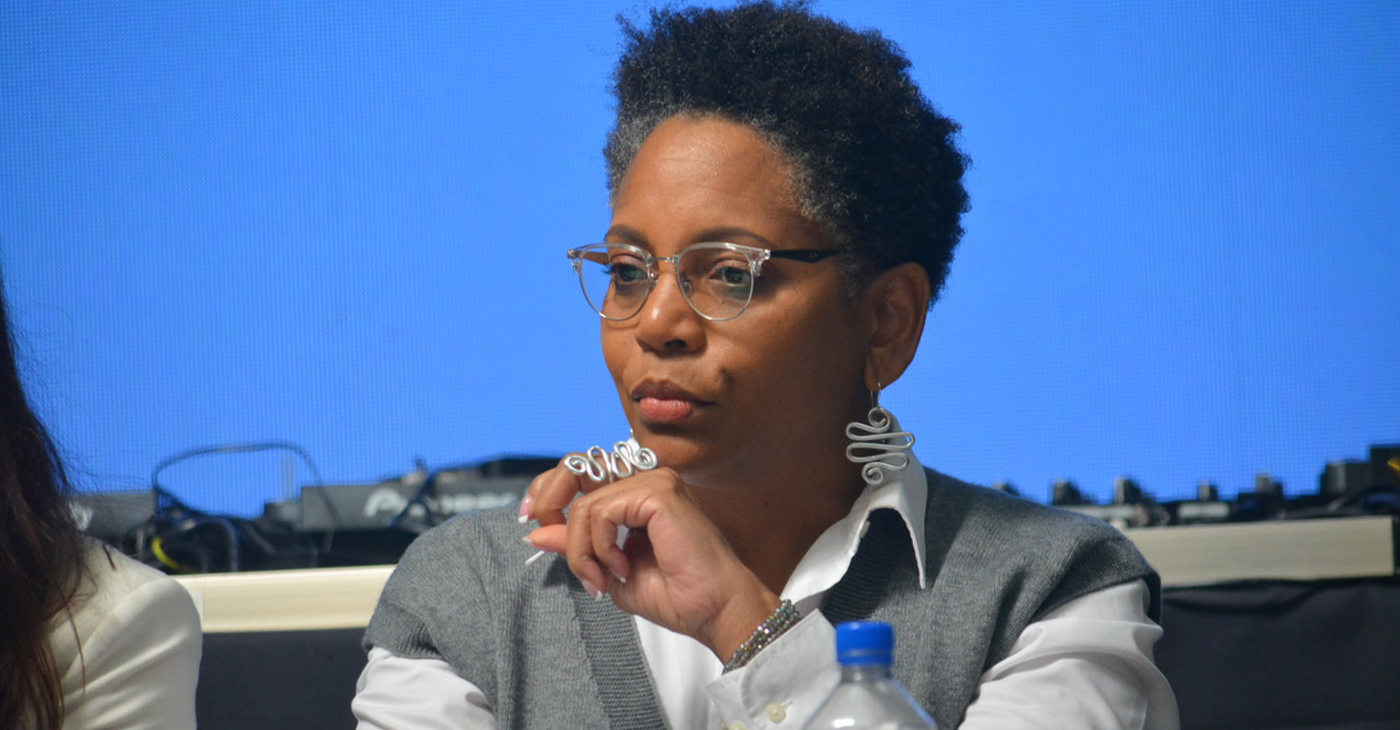
By Antonio Ray Harvey, California Black Media
The Community Housing Working Group hosted a briefing on April 23 at Cafeteria 15L in Sacramento. Discussions focused on how the housing crisis in California affects Black and Brown communities and explored ways to provide low-income families and individuals with affordable housing.
Tia Boatman Patterson, CEO and President of the California Communities Reinvestment Corporation, said “entry-level housing” is not available as it was in the past, adding that affordable units were a major point of entry into homeownership for many families in the Black community.
“My mother bought her first house when I was in junior high. It was an 850-square foot, two-bedroom and one-bathroom house in 1978. That house cost $30,000,” Boatman-Patterson said.
“A woman working part-time at JCPenney was able to afford that house. We don’t build these types of housing now. We do not build entry-level homeownership,” she added.
The Community Housing Working Group is a collection of diverse community organizations from across California working together to address housing challenges in their communities. The organization believes that solving the affordable housing crisis will require creating enough smaller, lower-cost, multi-family homes located near jobs, transit, and good schools.
The briefing included a panel discussion titled, “Exclusionary Zoning: A Look Back and a Path Forward.” Boatman-Patterson participated in that session along with Henry “Hank” Levy, Treasurer-Tax Collector for Alameda County, and Noerena Limón, consultant, Unidos U.S., and Board Member of California Housing Finance Agency.
Boatman-Patterson, a former Associate Director for Housing, Treasury and Commerce in the Office of Management and Budget for the Biden Administration, started her presentation by highlighting how exclusionary single-family zoning is contributing to continued segregation of California communities.
She said that single-family zoning originated in the Bay Area city of Berkeley in 1916.
“By creating single-family zoning and having fenced-off communities, you were able to exclude the ‘others,’” Boatman-Patterson said. “It really was a method to exclude — what they called ‘economic segregation’ — but that was a guise for racial segregation. Single-family zoning, along with redlining, became a systemic approach to exclude based on affordability.”
Title VIII of the federal Civil Rights Act of 1968 — commonly known as the Fair Housing Act of 1968 – is the U.S. federal legislation that protects individuals and families from discrimination in the sale, rental, and financing of housing. It was passed to open the doors to affordable housing.
In 1968, 65.9% of White families were homeowners, a rate that was 25% higher than the 41.1% of Black families that owned their homes, according to National Low-Income Housing Coalition. Today, those figures have hardly changed in the Black community, although White homeownership has increased five percentage points to 71.1%.
Boatman Patterson said the rate has not changed in Black and Brown communities because financing for affordable entry-level homes is almost nonexistent. The homeownership disparities contribute to the disturbing racial wealth gap in the nation, according to the National Low-Income Housing Coalition’s October 2018 report.
“We really must align the financing with the actual building of units, which we haven’t necessarily done. Because of this misalignment, I think we continue to see problems,” Boatman-Patterson said.
Antonio Ray Harvey
Sacramento Lawmakers Step Up Push for “Smart Solutions” on Crime, Public Safety
Assemblymember Tina McKinnor (D-Inglewood) and Sen. Lola Smallwood-Cuevas (D-Ladera Heights), both members of the California Legislative Black Caucus (CLBC), have joined other lawmakers and criminal justice reform advocates to address public safety in the state. On April 2, CLBC members gathered outside the State Capitol for the unveiling of the #SmartSolutions Public Safety Policy Platform, a package of 30 bills that addresses the top concerns of retailers, retail workers, the fentanyl crisis, and support for victims and survivors of crime.
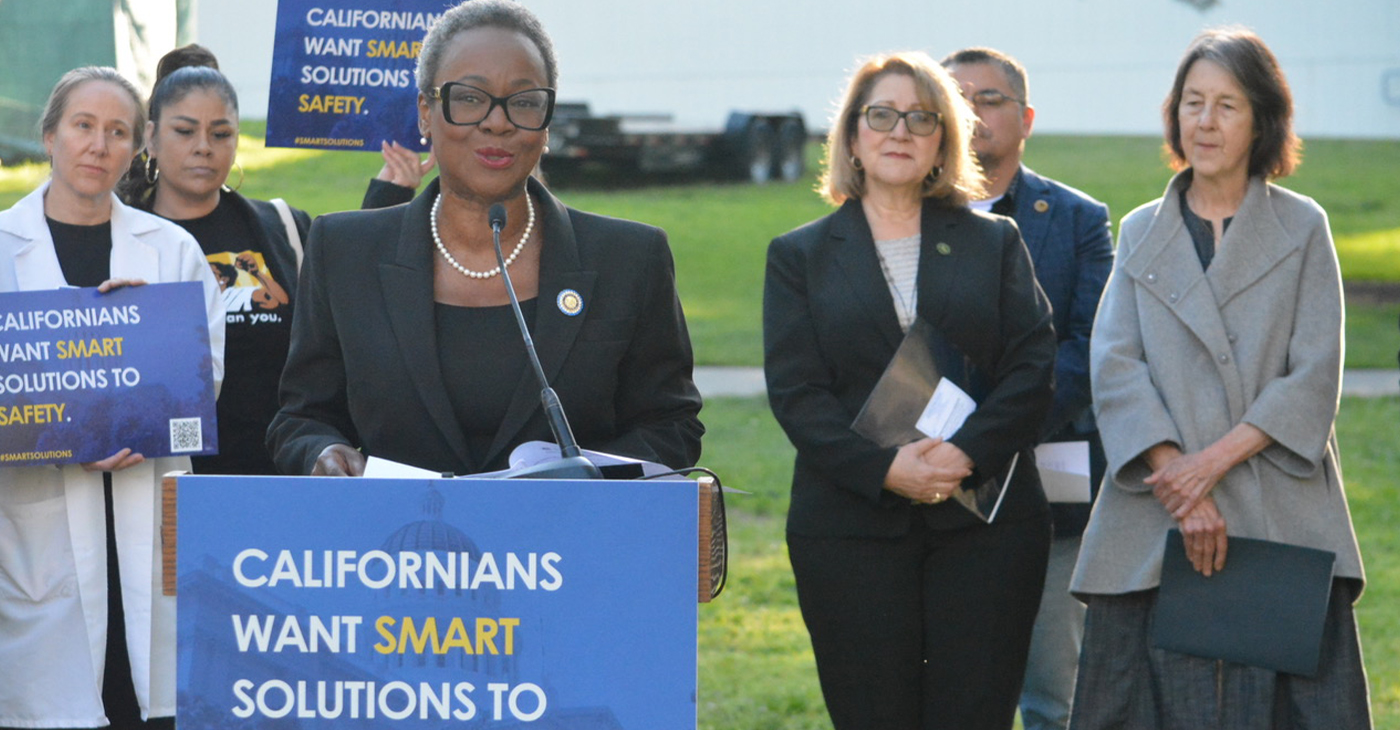
By Antonio Ray Harvey, California Black Media
Assemblymember Tina McKinnor (D-Inglewood) and Sen. Lola Smallwood-Cuevas (D-Ladera Heights), both members of the California Legislative Black Caucus (CLBC), have joined other lawmakers and criminal justice reform advocates to address public safety in the state.
On April 2, CLBC members gathered outside the State Capitol for the unveiling of the #SmartSolutions Public Safety Policy Platform, a package of 30 bills that addresses the top concerns of retailers, retail workers, the fentanyl crisis, and support for victims and survivors of crime.
“Instead of being tough on crime, we need to be smart on crime,” Smallwood said at the press briefing. “I am not saying that we’re not going to be holding folks accountable for the actions that they take. But we will not rely on incarceration as a solution.”
McKinnor, Smallwood-Cuevas, a coalition of advocates, addiction treatment experts, and Yurok Tribal leaders joined Sen. Nancy Skinner (D-Berkeley), and Assemblymember Eloise Gómez Reyes (D-Colton) at the press conference organized to promote legislative solutions that ensure safety and justice.
Organizers say #SmartSolutions is an intersectional campaign that combats criminalization and mass incarceration by pushing for the redirection of state resources to fund housing, health care, schools, services for victims, and programs that reduce recidivism and promote accountability, beyond incarceration.
Opponents of the bills proposed in the #SmartSolutions campaign say their colleagues who support reform-focused strategies are looking the other way on crime and encouraging lawlessness.
For example, Assemblymembers Wendy Carillo (D-Boyle Heights), Carlos Villapudua (D-Stockton) and Mike Gipson (D-Carson) are supporting Assembly Bill (AB) 1990, legislation that would allow a peace officer to arrest shoplifters without a warrant or without witnessing the theft.
Assemblymember James Ramos (D-Highland) authored AB 1772 and introduced it in January. The legislation proposes sterner penalties for retail theft, particularly for repeat offenders.
The #SmartSolutions campaign is co-sponsored by Ella Baker Center for Human Rights, Smart Justice California, American Civil Liberties Union (ACLU) California Action, Californians for Safety and Justice, and Californians United for a Responsible Budget (CURB).
Smallwood recently introduced two bills she hopes will provide solutions to the escalating retail theft problem in the state. Senate Bill (SB) 1446 addresses theft, technology and job security in retail establishments and aims to minimize workplace violence, according to supporters. SB 1282 requires counties to expand the use of a diversion program for theft cases.
“Restorative Justice is the essential pillar of making our criminal justice system more fair, just, and equitable,” McKinnor said. “Restorative justice recognizes the trauma of victims and preparatory of crimes and provides a constructive space for victims to find healing.”
Dr. Amiee Moulin, founder of the California Bridge program and chief of the Division of Addiction Medicine at the University of California (UC) Medical Center, said drug “addiction and overdose” are taking a toll on patients, families and the community.
“I believe that California’s proposed legislation focused on expanding access to treatment is a crucial step towards saving lives,” Moulin said. “By removing barriers to care and embracing evidenced-based strategies we can provide patients the support they need to heal and recover.”
Antonio Ray Harvey
Advocates Weigh in on Calif. Black Caucus Reparations Package
On Feb. 21, the California Legislative Black Caucus (CLBC) held a press conference at the state Capitol to introduce a package of reparations legislation the lawmakers call “a starting point” to atone for the state’s legacy of discrimination. All 12 members of the CLBC were present to explain their efforts to rectify the damages caused by systemic discrimination against Black Californians detailed in the 1,100-page report by the first-in-the-nation California reparations task force.
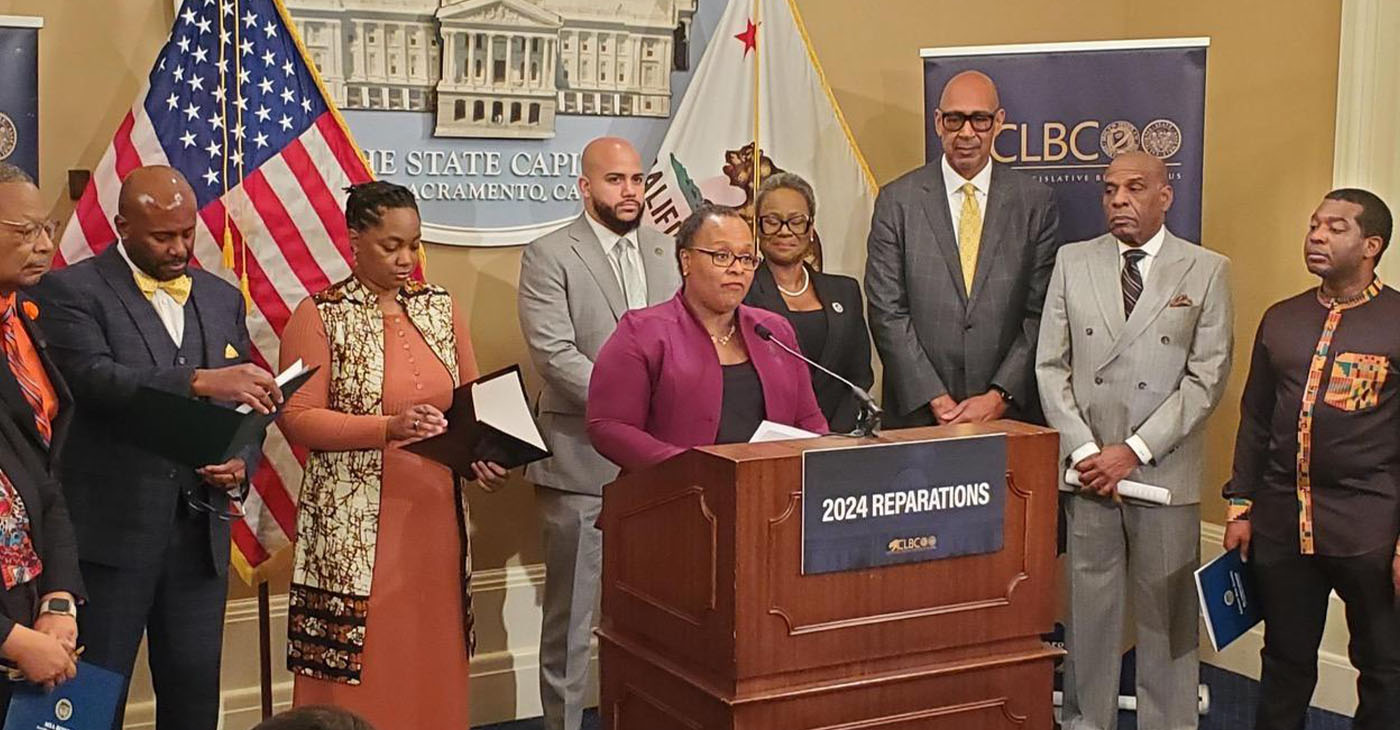
By Antonio Ray Harvey
California Black Media
On Feb. 21, the California Legislative Black Caucus (CLBC) held a press conference at the state Capitol to introduce a package of reparations legislation the lawmakers call “a starting point” to atone for the state’s legacy of discrimination.
All 12 members of the CLBC were present to explain their efforts to rectify the damages caused by systemic discrimination against Black Californians detailed in the 1,100-page report by the first-in-the-nation California reparations task force.
The nine-member panel submitted the recommendations on June 28, 2023.
CLBC chairperson Lori Wilson (D-Suisun City) said it may take three to seven years to pass legislation aimed at implementing the task force’s recommendations.
The package the CLBC members presented consists of 14 legislative proposals, each designed to address different aspects of systemic racism and inequality.
One proposal, Senate Bill (SB) 490, put forth by CLBC Vice Chair Sen. Steven Bradford (D-Inglewood), calls for the establishment of the California American Freedmen Affairs Agency (CAFAA).
This agency would administer reparations programs and aid Black families researching their family lineage. The cost of implementing such an agency has not yet been estimated, but reparations advocates say its creation signifies a step toward acknowledging and rectifying past injustices.
Another proposal by Assemblymember Cory Jackson (D-Riverside), ACA 7, seeks to amend Prop 209, the initiative passed by voters in 1996 that prohibits considering race, color, sex, or nationality in public employment, education, and contracting decisions.
This amendment would allow the governor to approve exceptions to the law in order to address poverty and improve educational outcomes for African Americans and other marginalized groups.
Bradford also discussed proposal legislation aimed at compensating families whose properties were seized through eminent domain as a result of racism and discrimination.
The package of bills includes a measure proposed by Assemblymember Reggie Jones Sawyer (D-Los Angeles), Assembly Bill (AB) 3089 to formally acknowledge California’s history of slavery and discrimination, requiring lawmakers to issue a formal apology.
Additionally, a proposed constitutional amendment, ACA 8, sponsored by Wilson aims to ban involuntary servitude, particularly within the state’s prison system.
Reparations advocates and social justice groups from statewide organizations shared their support and criticism of the 14-bill reparations package with California Black Media (CBM).
A Coalition for a Just and Equitable California (CJEC) stated that the CLBC’s package does not address direct-cash payment, which, for that group’s leadership, is a non-negotiable component of any proposed compensation package.
“Our coalition’s unwavering commitment has been to pursue lineage-based reparations, encompassing direct monetary payments/compensation, state recognition of descendants as a protected class, and the establishment of the California American Freedman Affairs Agency through Senate Bill (SB) 490,” CJEC member Chris Lodgson outlined in a statement.
Lodgson continued, “We believe these vital components are imperative and a necessary first step toward true reparations. As we’ve communicated to elected officials directly for some time, we believe any reparations package must be targeted explicitly and exclusively to California’s 2 million Black American descendants of persons enslaved in the U.S. (American Freedmen).”
Media present at the news briefing persistently questioned Wilson and other CLBC members about direct payments.
Wilson mentioned that the budget deficit California is currently facing is being considered in discussions about compensation. A Legislative Analyst’s Office report released Feb. 20, estimates that the state’s budget shortfall could expand to $73 billion by May.
“In regard to direct-cash payments to individuals, we will continue to have that discussion as we navigate the next few years,” Wilson said. “As noted, we’re halfway through a legislative session. We have about three months of the legislative process in each house (Senate and Assembly) to work through these existing bills.
“In the next session, we have two years, and during that two-year session, we will consider including additional payments whether they are direct-cash payments or direct payments to communities,” Wilson said.
The Alliance for Reparations, Reconciliation, and Truth (ARRT), a collaboration of California’s leading Black power-building and justice groups, supports seven of CLBC’s 14 reparations bills with proposals that include the restoration of property, establishing the property tax assistance for Descendants of Enslaved Persons program, a formal apology for human rights violations and crimes against humanity, amending the California Constitution to prohibit involuntary servitude for incarcerated persons, and prohibiting discrimination based on natural and protective hairstyles.
“The California Legislative Black Caucus reparations package marks a historic and meaningful moment in time. ARRT encourages lawmakers to pursue an even more expansive and definitive action to fulfill the reparations principles as recognized by the United Nations,” stated James Woodson, AART co-founder and executive director of the California Black Power Network. “Reparative justice must be impactful, transformative, and enduring, thus paving the way toward atoning for the wrongdoings deeply imprinted in the state’s history and healing this democracy.”
ARRT is a collaboration between the Black Equity Collective, the California Black Power Network, Catalyst California, Equal Justice Society, and Live Free USA, Live Free California.
Former members of the California reparations task force have partnered with AART: Loyola-Marymount clinical psychologist professor Dr. Cheryl Grills; Oakland-based civil rights attorney Lisa Holder; Dr. Jovan Scott Lewis, chair of the Department of Geography at the University of California Berkeley and Oakland-based attorney Donald Tamaki.
“We absolutely are (in support of direct-cash payments),” Woodson told California Black Media. “I think we got to have it all. There were multiple harms that were caused and one of them was financial and that needs to be compensated for with cash payments. And there are also systemic harms that were created. We need to change laws. We need to change how rules work because a lot of it flows out of anti-Black racism. We have to have everything because if you leave anything out it’s not for reparations.”
CBM also learned that there will be a series of listening sessions with the CLBC to help educate Californians about the reparation bills and the workings of the legislative process.
The members of the CLBC are Assemblymember Lori D. Wilson (D-Suisun City); Sen. Steven Bradford (D-Inglewood); Assemblymember Akilah Weber (D-La Mesa); Assemblymember Isaac Bryan (D-Los Angeles); Assemblymember Mia Bonta (D-Alameda); Assemblymember Chris Holden (D-Pasadena); Assemblymember Mike Gipson (D-Carson); Assemblymember Corey Jackson (D-Riverside); Assemblymember Reggie Jones-Sawyer (D- Los Angeles); Assemblymember Tina McKinnor (D-Inglewood); and Sen. Lola Smallwood-Cuevas (D-Los Angeles).
-

 Community3 weeks ago
Community3 weeks agoFinancial Assistance Bill for Descendants of Enslaved Persons to Help Them Purchase, Own, or Maintain a Home
-

 Business3 weeks ago
Business3 weeks agoV.P. Kamala Harris: Americans With Criminal Records Will Soon Be Eligible for SBA Loans
-

 Activism4 weeks ago
Activism4 weeks agoOakland Post: Week of April 10 – 16, 2024
-

 Community3 weeks ago
Community3 weeks agoAG Bonta Says Oakland School Leaders Should Comply with State Laws to Avoid ‘Disparate Harm’ When Closing or Merging Schools
-

 Activism2 weeks ago
Activism2 weeks agoOakland Post: Week of April 24 – 30, 2024
-

 Community2 weeks ago
Community2 weeks agoRichmond Nonprofit Helps Ex-Felons Get Back on Their Feet
-

 Community2 weeks ago
Community2 weeks agoOakland WNBA Player to be Inducted Into Hall of Fame
-

 Community2 weeks ago
Community2 weeks agoRPAL to Rename Technology Center for Retired Police Captain Arthur Lee Johnson

